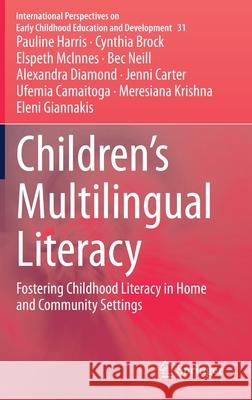Children's Multilingual Literacy: Fostering Childhood Literacy in Home and Community Settings » książka
topmenu
Children's Multilingual Literacy: Fostering Childhood Literacy in Home and Community Settings
ISBN-13: 9789811565861 / Angielski / Twarda / 2020 / 323 str.
Children's Multilingual Literacy: Fostering Childhood Literacy in Home and Community Settings
ISBN-13: 9789811565861 / Angielski / Twarda / 2020 / 323 str.
cena 402,53
(netto: 383,36 VAT: 5%)
Najniższa cena z 30 dni: 385,52
(netto: 383,36 VAT: 5%)
Najniższa cena z 30 dni: 385,52
Termin realizacji zamówienia:
ok. 22 dni roboczych.
ok. 22 dni roboczych.
Darmowa dostawa!
Kategorie:
Kategorie BISAC:
Wydawca:
Springer
Seria wydawnicza:
Język:
Angielski
ISBN-13:
9789811565861
Rok wydania:
2020
Wydanie:
2020
Numer serii:
000370575
Ilość stron:
323
Waga:
0.65 kg
Wymiary:
23.39 x 15.6 x 2.06
Oprawa:
Twarda
Wolumenów:
01
Dodatkowe informacje:
Wydanie ilustrowane











